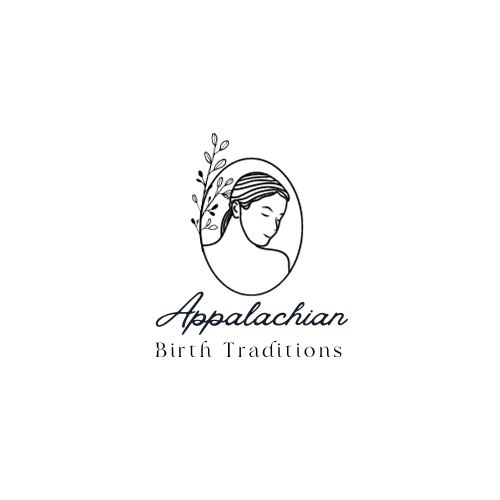Please read this current bill affecting midwifery in wv
February 2024
HB 5491 Follow this link to read the bill in its entirety.
Link to Committee Members If you wish to contact your delegates regarding this bill you can find a list at this link. Two recommended contacts are Kathie Hess Crouse (Putnam County and bill sponsor) and Evan Worrell (Cabell County). Kathie Crouse can be reached by email Kathie.crouse@wvhouse.gov or phone number 304-349-3118.
Call your delegates and let them know that you want them to vote “No” on HB 5491
Reasons To oppose HB 5491
- The bill states that “it is unlawful for any person to practice midwifery in this state….unless they hold a license…”
- Traditional Midwives/Lay Midwives/Direct Entry Midwives as well as CPMs in West Virginia do not hold a license. They are not responsible to the state but instead the communities and families that they serve. It is up to the consumer to verify the midwife has proper training and is an appropriate birth attendant. Being a Certified Professional Midwife means that a person completed some type of study (either being assessed by another similar midwife or completing college level study followed by completion of a test).
- There are limited opportunities (outside of extreme financial and personal difficulties) to become a CPM in the state of WV. Particularly when you consider that many who are inspired to act as an unlicensed midwife have family responsibilities.
- Increases the financial burden for midwives that are licensed due to the educational requirements, license fees, and continuing education requirements. There is a movement in the United States to continually increase the education necessary to work in the medical field. This happened to physical therapists, and also happened to those with a masters of nursing (moving toward a doctor of nursing). The cost of education continues to skyrocket. These costs must be transferred to the consumer.
- The line stating that a license can be removed if “is guilty of conduct derogatory to the morals or standing of the profession of midwifery.” This statement is vague. Who is interpreting this conduct? What if the person interpreting this statement is against someone with religious beliefs or morals that are deemed “tolerant” to some types of behavior but not others?
- There is a list that would force a midwife to seek consultation with a physician and then “mutually select” how to manage the case. But I can tell you that the medical system either does not have or has very few doctors, for example, that think birth should EVER occur outside the hospital. The woman should get to make an informed decision. What if her decision conflicts with the physician? She should have bodily autonomy.
- There are many points in this bill that seem to tell a CPM how to practice. In another profession this would not be acceptable. A CPM should be an expert in caring for women as a midwife. There shouldn’t need to be legislation listing out how to act in the case of a transfer, etc. What happens if you cannot go with the mother for some legitimate reason? Anyone could take an issue with how the midwife was acting, decide to pursue litigation, find a place through this bill to bring action against a midwife. For example, a doctor that does not like the presence or existence of homebirth and wants to have a license revoked.
- IBCLC licensing An interesting comparison can be made between licensing midwives and licensing lactation consultants. This article shows how Georgia decided not to license IBCLCs.
- Medically licensed midwives are already available in WV through Certified Nurse Midwives (CNMs). Including in the hospital. Insurances don’t even want to cover an out of network CNM for a homebirth because it is not “medically necessary” and you can receive care from a CNM in a hospital. I experienced this with two of my own homebirths attended by a CNM. There are some who hope that Medicaid funding will be available for those desiring a birth with a CPM. If you look at other states reimbursements from Medcaid to homebirth midwives it is around $2,000 (and maybe even less). Currently there are CPMs charging at least $5,000 dollars per birth. This would still leave a large out of pocket cost. Traditional midwives may be able to keep their costs lower, incurring a similar out of pocket cost to the client.
- The bill does mention an exception for religious or cultural midwives. But it says that there must be a historical use of a traditional midwife, and that excludes many people looking for a traditional birth attendant. This seems to be discriminatory since it restricts this exception to certain sects. Who decides what religion or culture is valid and meets the criteria? Is it Baptists attending Baptists…Atheists attending Atheists…Catholics attending Catholics? If I am a Christian, but I am not Amish, but Amish are Christian…does that limit the midwife? Is “Appalachian” a culture? It is too vague and open to interpretation.
- What about birth centers? Yes, this should be an option if a woman wishes to birth in a lower intervention setting more similar to home. Other states with birth centers have a difficult time supporting them financially, and even the most well meaning person may have a difficult time keeping it open. I have talked to multiple women who had a wonderful birth center experience, but shortly after the birth center sadly closed. Some plain communities are able to support a birth center both with volume (due to a cultural acceptance of unmedicated birth), and financial contributions.
